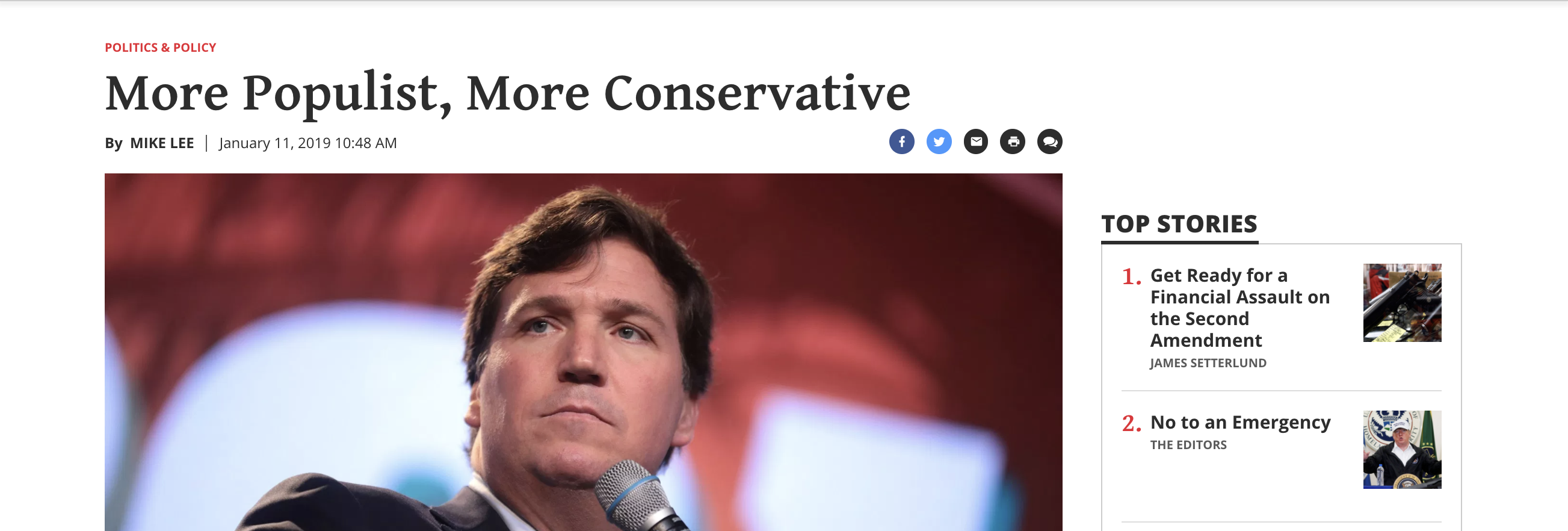Let’s Start Working to End This Shutdown
Jan 18, 2019
Civil Asset Forfeiture Reform
Jan 18, 2019
Sen. Lee Delivers Remarks on March for Life
Jan 16, 2019
Floor Remarks on the March for Life
Jan 16, 2019
Let’s End Government Shutdowns for Good
Jan 11, 2019
Protecting Our Rural Communities
Jan 11, 2019
More Populist, More Conservative
Jan 11, 2019

Sens. Lee and Romney Introduce the Protect Utah's Rural Economy Act
Jan 10, 2019
Sen. Lee Calls for End to Shutdown and Border Crisis
Jan 8, 2019
Towards A Better Land Deal in Utah
Dec 21, 2018
This Wednesday, a group of legislators tried to sneak legislation expanding the federal government’s control of Utah past the United States Senate. The 680-page bill was not made public until 10 am Wednesday morning, and less than 12 hours later, these legislators were trying to force final passage through the Senate through unanimous consent, without any debate or amendment.
I objected.
This bill would have had a big impact on the state of Utah, creating 1.3 million acres of wilderness - about half of that in Utah - and permanently reauthorizing the Land and Water Conservation Fund (LWCF). That would have made any reform of that flawed program impossible.
Coming from a state where two-thirds of the land is owned by the federal government, where we can’t do anything without leave from the federal government, that would have hurt.
When the federal government owns large amounts of land in your state it means your schools are underfunded; fire, search, and rescue are underfunded; local government is underfunded. That underfunding results from the fact that most of the land is owned by the federal government. You can’t tax that land. You receive pennies on the dollar for a program called Payment in Lieu of Taxes. Most of the land cannot be developed privately. Most of the land cannot be taxed by the states and localities.
Now make no mistake. I’m not talking about developing our National Parks. We don’t want to set up an oil drilling rig under the Delicate Arch. Of the 33.3 million acres owned by the federal government in Utah, just 12 million of them are parks, forests, wilderness, or recreation areas. The vast majority of the rest of federal land could be developed, taxed, and used to create revenue. But right now that land that is excessively restricted and environmentally degraded as a result of poor federal land management policies. And many of these degrading policies are linked to the LWCF.
I am not opposed to compromise. I am open to reforming the LWCF. If the program could be reformed so that the fund was used for states to buy land, and not the federal government, I could support that. That is how the program was originally designed. States were supposed to get 60 percent of LWCF money. Instead, states have only received 25 percent. That must change.
Also, our National Park Service is already suffering from over $10 billion worth of maintenance backlogs. The federal government should not be buying more land when it can’t properly manage the land it has now. LWCF money must first be spent on ending the existing maintenance backlog before more new land can be purchased.
But my biggest issue with the bill was that it did nothing to address the imminent threat Utah faces from unilateral executive land grabs through the Antiquities Act. I offered to drop my objection to the entire bill in exchange for adding just two-words: “or Utah.”
These two words would permanently give rural Utahns the peace of mind that the land they use for grazing, farming, hunting, shooting, and a variety of other activities couldn’t be stolen from them with the stroke of a Presidential pen. It’s the same peace of mind already enjoyed by people in Alaska and Wyoming. They already have an exemption from the Antiquities Act.
All I asked for was equal treatment for my fellow Utahns.
And that call for equality was rejected.
I will continue to work with my colleagues on the Senate Energy and Natural Resources Committee to find an adequate compromise that best serves Utah interests, including reforms for the LWCF. As Chairman of the Subcommittee on Public Lands, securing such a deal will be my top priority.
But what I won’t do is sign off on a deal that is bad for Utah.
